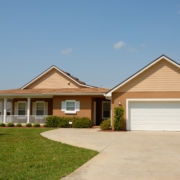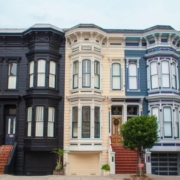Airbnb and Short-Term Rentals in San Diego: The Ban that Never Was
You have likely seen the signs around town — “Neighborhoods are for Neighbors, Not Vacation Rentals.” This phrase has become the mantra of “Save San Diego Neighborhoods,” the lead organization pushing back against San Diego’s rapidly expanding short term rental market. Save San Diego is an organization fighting to stop the “illegal conversion of San Diego homes to short-term vacation rentals.” In doing so, Save San Diego has been pushing the San Diego City Council to impose significant regulations with respect to short-term rentals such as Airbnb.
Mounting such a fight, however, has not come without its challenges. The primary group pushing back against Save San Diego to try and keep San Diego’s short-term rental market alive and thriving is “Share San Diego,” a coalition of San Diegans in support of short-term rentals. Naturally, Share San Diego is strongly supported by short-term rental companies, such as Airbnb and HomeAway. Short-term rental units generate nearly $300 million annually for San Diego homeowners and an additional $200 million for the surrounding businesses. For perspective, the San Diego Padres—San Diego’s only professional sports franchise—generated only $266 million in total revenue for all of 2017. Obviously, there is a lot at stake when trying to regulate an industry of this size.
Despite resistance from Share San Diego and other proponents of short-term rentals, Save San Diego looked like they achieved victory back in July and August of 2018 when the San Diego City Council voted to outlaw vacation rentals in secondary homes, limiting short-term stays to one’s primary residence only.
The victory, though, was only temporary.
In response to the City’s decision to regulate short term rentals, Share San Diego put together a referendum petition that garnered over 62,000 San Diegan signatures in support of challenging the regulations. The petition forced the City to either rescind the ordinance or to have a public vote on the ordinance. On October 22, 2018, as a result of the referendum, the San Diego City Council made its choice and voted 8-1 to rescind the newly minted short-term rental ordinance—the ordinance that the Council passed barely three months earlier.
The repeal of the short-term rental regulations marked a significant win for Share San Diego, Airbnb and other proponents of short-term rentals. Yet, while Share San Diego may be leading on the scoreboard as of today, Save San Diego and other opponents of the short-term industry will undoubtedly continue to advocate for new regulations. Consequently, the repeal of short-term rental regulations has created tremendous uncertainty with regard to how the City of San Diego will look to regulate short term rentals going forward, if at all, and poses the question of what in fact is best for San Diego.
How Did We Get Here
- In March 2017, San Diego City Attorney Mara Elliott issued a memo wherein she determined that “any use that is not listed in the City’s zoning ordinance is prohibited.” As a result, because short-term rentals are not listed, it was concluded that the San Diego Municipal Code does not permit short-term rentals in any zone in the city—residential, commercial or otherwise. At that point, the issue appeared cut and dry—short-term rentals are illegal and, therefore, should no longer be allowed. Not quite. Despite this memo being issued, Mayor Kevin Faulconer’s office chose not to declare the short-term rentals illegal and instead decided to wait for regulations, which caused the “mini-hotels” to continue spread throughout San Diego.
- The City Attorney’s memo and the fact that short term rentals continued to be permitted by the Mayor’s office created a vacuum of uncertainty that the San Diego City Council was forced to address.
- On July 16, 2018, the San Diego City Council voted to outlaw vacation rentals in secondary homes, limiting short-term stays to one’s primary residence only, so long as the rentals do not exceed six months out of the year, the owner applied for a permit and paid an annual fee of $949. Notably, the regulation did not include any exemption for the areas of Mission Beach, where 44% of the homes are estimated to be short-term rentals, or Pacific Beach—areas that include a total of over 3,100 short-term rental homes.
- On August 1, 2018, after a five hour long hearing where opponents of the regulation voiced their concern, the San Diego City Council reaffirmed its July 16th decision. This put the new regulation on course to become effective in July 2019. The reaffirmation of the short term rental ordinance was viewed by Share San Diego as “a massive loss for both property rights and the tourism industry in San Diego” and a decision that “will leave thousands of short term rental hosts without a lifeline and even more small business crippled with losses in revenue and traffic.”
- Backed by Airbnb and HomeAway, opponents of San Diego’s short-term rental ordinance organized to fight the new regulations—lawsuits were threatened, testimony was heard, organizations were formed and, ultimately, a referendum petition was circulated with goal of forcing San Diego to revisit its controversial short-term rental regulations.
- On August 30, 2018, Share San Diego’s referendum seeking to overturn the short-term rental ordinance collected signatures from more than 62,000 San Diegans. Only 36,000 signatures were needed.
- On October 8, 2018, Share San Diego’s referendum and its 62,000 signatures were certified by the San Diego City Clerk. The certification presented the San Diego City Council with two options: (1) rescind the short-term rental ordinance; or (2) place the ordinance up for a public vote at a future date, likely in 2020.
- On October 22, 2018, the San Diego City Council voted 8 – 1 to rescind the July 16th short-term rental ordinance. Given the delay a 2020 public vote would bring, in addition to the potential of incurring millions of dollars defending lawsuits filed by opponents of the ordinance, rescission of the ordinance and starting over was the preferred choice for both opponents and proponents of the regulation.
- The City now has the option of adopting a new set of rules within the next year, but such rules would have to be substantially different from the ones that were repealed. What set of regulations would be “substantially different” is yet another unknown
When addressing the importance of the short-term rental market in San Diego, Share San Diego and other opponents of the short-term rental ordinance focus largely on the undeniable economic benefit that short term rentals bring to San Diego and property owners. Short-term rental hosts are of the position that they should have the right to use their properties as a way of supplementing their income. In addition to the direct supplemental income a property owner garners from renting their home short-term, the community itself receives an economic boost.
Specifically, in October 2017, Alan Nevin of the Xpera Group published a study focusing on the economic impact of short-term rentals in San Diego. The study concluded that short term lodging in the City of San Diego generated almost $500 million in spending ($300 million direct and $200 million indirect and induced spending), $700,000 in sales tax revenue and over 3,000 jobs[1]. San Diegans earned $5.2 million over Labor Day weekend alone as they hosted 15,000 travelers. For comparison, as stated above, the San Diego Padres generated $266 million in total revenue in 2017.
A common counter to the economic benefit that short-term rentals bring to San Diego is that the benefit is coming at the expense of San Diego hotels. However, the Xpera Group’s report concluded that not only do the majority of short-term renters stay seven nights or longer (i.e. longer than a typical hotel stay), but short-term rental nights made up only 2.7% of hotel nights in San Diego. Of that 2.7%, the report further concluded that the short-term rental nights did not pull from hotel nights because of the cost and location of where the short-term rental nights occurred. The conclusion, as set forth in the Xpera Group Report, is that the short-term rental market “has had a minimal or negligible effect on the hotel market.”
As a result, opponents of the short-term rental market and those that want to regulate the industry (i.e. Save San Diego Neighborhoods) shy away from trying to diminish the economic impact of the short-term rentals. Rather, the main argument put forth by proponents of short-term rental regulations is essentially that short-term rentals harm the character and stability of neighborhoods in a way that is inconsistent with City Planning and negatively impacts San Diego residents.
As posited by Save San Diego Neighborhoods, short-term rentals disrupt San Diego communities by creating businesses in areas that were designed and intended to be purely residential communities. Unlike even monthly rentals, a short-term rental involves significantly more moving parts and, more often than not, a different type of customer. The infrastructure (i.e. roads, law enforcement, garbage collection, utilities, community maintenance) needed to support a vacation renter, short term or otherwise, is fundamentally different than that which is required to support a residential tenant. When the frequency of vacation renters is drastically increased through short-term rentals, the strain on the communities’ infrastructure is exacerbated. At some point, the strain will become too much. Similar to the SDSU Mini Dorm issue, the character of neighborhoods and the stability of communities are necessarily and unavoidably jeopardized, or at the very least, transformed, by the proliferation of short-term rentals.
One of the other main policy arguments put forth by Save San Diego Neighborhoods is that short-term rentals drive up rental and housing costs for San Diego residents. As outlined in our prior article related to rent control, rents in San Diego have increased substantially over the last three years. The average rent in March of 2018 in San Diego was $1,887, which represented a 20% increase since 2015. The median cost of rent is simply much higher than the average San Diegan can afford, which is causing families to be pushed into suburban neighborhoods where rents tend to be lower. However, Save San Diego Neighborhoods argues the increase in short-term rentals removes thousands of otherwise available long-term rental homes from that market.
Similarly, from a homebuyer’s perspective, Save San Diego Neighborhoods argues the increase of short-term rentals is naturally drawing otherwise uninterested investors to the residential housing market. The average potential homeowner is then forced to compete with investors whose sole business model is based on valuations associated with vacation rentals. The California homeownership rate already lags around 10 percentage points below the national homeownership rate, 54.6% versus 64.2%. That means that Californians rent at a rate that is 10% higher than the national average. In a market where investors are already competing with primary residence holders for middle class housing, the ever-expanding short-term rental market provides yet another obstacle to middle class homeownership. Put another way, with the ease of short-term renting created through sites like Airbnb, what is to prevent Pacific Beach and Ocean Beach from becoming like Mission Beach where over 44% of the homes are used as vacation rentals?
The economic benefit cannot be denied and will continue to be the primary argument of Share San Diego and those in favor of short-term rentals in San Diego. Opponents of short-term rental regulations will not try to deny this fact. That is not to say, however, that the economic benefit cannot be outweighed by a more compelling interest. In this instance, that interest is preserving the character and stability of a community and preventing the fundamental, unanticipated transformation of communities.
Technology—Yet Another Layer
There is one other, overlapping reality to this ongoing short-term rental saga: technology. Similar to the taxi industry and Uber, short-term rentals existed long before AirBnb and HomeAway came along. Airbnb simply made short-term rentals much more accessible in the exact same way that Uber made ride-sharing so easy that it has become ubiquitous.
It is technology that has allowed the use of short-term rentals to expand throughout the world. In years past, without technology (read: Internet), the increase of short-term rentals in certain communities and neighborhoods may have moved at rate that allowed those communities to adapt and families to adjust. Now, the rapid expansion of short-term rentals at the rate seen by communities, such as San Diego, make it nearly impossible for those communities to keep pace and adjust appropriately.
The challenge, then, is not whether short term rentals should be regulated in San Diego, but, rather, how the short-term rentals should be regulated. Clearly, some boundaries need to be drawn in a way that allows residential communities and neighborhoods to support an increase in vacation renters. Both sides likely agree with this position.
However, government, especially at the local level, is extraordinarily poorly equipped to regulate technology. This is especially true in an emerging market where even those that are shaping the landscape of the technology cannot claim to have visibility beyond three or four years. This fundamental shortcoming is exacerbated by the political nature of the California housing market and the size of the short-term rental market. This does not even begin to address the legal implications of such a decision (another blog for another day). The technological component and the political considerations surrounding short-term rentals will make it extremely difficult for a local body of government, such as the San Diego City Council, to regulate.
To Sum It All Up
Share San Diego and Save San Diego Neighborhoods each present strong arguments in favor of their respective positions. However, the reality is that attempts by the City of San Diego to regulate the short-term rental industry will inevitably benefit one side over the other. Ultimately, because of the relative strength behind each side in this fight and the arguments each side presents, this matter is likely to be resolved through a ballot measure and public vote.
While the most recent short-term rental ordinance from July 2018 may have had a short life span, if any at all, the potential for compromise between the two sides—one that furthers each of their goals—is certainly within the realm of possibility and one that San Diego and its residents should strive to achieve.
[1] The 2017 figures increased from approximately $196 million in direct and indirect spending in 2015.











